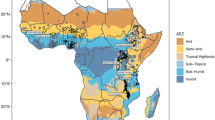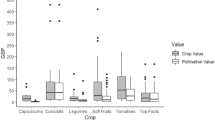Conclusion
Questions of the following sort have been raised throughout the 1960s and 70s: What factors contribute to the process of underdevelopment? The answer generally is surplus drain. Frank visualizes this drainage as “a whole chain of metropolites and satellites, which runs from the world metropolis down to the hacienda or rural merchant who are satellites of the local commercial metropolitan centre but who in their turn have peasants as their satellites” [34].
Arrighi and Saul [35] argue that production potential and structural transformation are constrained by surplus drainage because (1) profits of overseas firms are repatriated, (2) too much surplus is consumed by a self-indulgent labor aristocracy and by bureaucratic elites, and (3) the generation of a large surplus from the peasantry is discouraged. They further declare that two problems have to be tackled if growth of productivity among agrarian laborers is to be promoted: (1) incentives must be created to exploit surplus land and labor-time more intensely; (2) the productive absorption of surplus has to be raised by creating a type of organization of production and institutions in the traditional sectors which would guarantee the desired response [36].
From the perspective of researchers covertly situated in rural areas neither these statements of problems nor the solutions are incisive. The difficulty one has with Frank's formulation is that “he tends to deal with the problem from the point of view of commodity exchange rather than production relations” [37].
As for Arrighi and Saul, my Luapula studies indicate that: (1) Land and especially labortime is already “intensely” exploited (though the former not necessarily by men). Land and labor are used in a manner to maximize rural profits within the constraints of specific rural distributive and production relations. (2) Not being furthered, however, are institutions which would rationalize both the distribution of initial endowments and the relations of production. Certainly, institutional modifications instigated by rural dwellers themselves are not granted party or government support.
There are at least two good reasons why some Luapulans are “capitalistic” and productively individualistic in their orientation:
-
1.
Land is, in fact, controlled and worked by women. Therefore, throughout most of their productive lives a large percentage of men are landless proletarians or capitalists. They are employed as contract workers to do repairs, to build, work someone's land, or drive lorries; otherwise, they trade fish, flour, sugar and imported items up and down the valley or from stores which they own. Matrilineal inheritance discourages economic ties between spouses and hence investment in family enterprises.
-
2.
As fishermen, shifting cultivators, and traders the Luapula population is mobile and not tied to the land. Nor is land scarce. To create a more or less independent peasantry, or communes in this socio-environmental setting is rather unreal, for as Goody remarks [38] “unfree tenancies mean little unless land is highly valued and the peasantry has nowhere else to go.”
Finally, I should note that taking all the factors I have considered into account, class contradictions which are emerging in Luapula, are quite complex and not yet, in themselves, a dynamic force. To be considered a force for social change other variables must be taken into account, for example, the availability of an alternative (to matriliny) ideology which clarifies programs for the allocation and distribution of wealth.
Furthermore, the initiative to make those contradictions significant for social change may not come from the poor (or the proletariat) but from those who are gaining material well-being in new ways. The poor, provided the society is relatively open (as is matriliny by way of its kin obligations and inheritance), may well be primarily concerned to ascend to the existing priveleged class (of capitalists). They will then exchange their subordinate but adoptable ideology for the dominant one, rather than press for a revolutionary transformation of society at large.
Certainly in Luapula it is the wealthier matrilinealists who are intent on changing ideology, laws, and institutions. The rural poor astraddle the fence. As noted, they cling to their old ideology to provide security, at the same time that they hope it will propel them into capitalistic ventures. Should they fail, matriliny cushions their fall, and so the social formation reproduces itself. Thus it becomes doubly significant for us to examine how the “wealthier” in a particular society cope with structural contradictions in the light of emerging socio-economic pressures.
Similar content being viewed by others
Additional information
Karal O. Poewe is Assistant Professor of Anthropology at The University of Lethbridge, Alberta, Canada.
Rights and permissions
About this article
Cite this article
Poewe, K.O. Matriliny and capitalism: The development of incipient classes in Luapula, Zambia. Dialect Anthropol 3, 331–347 (1978). https://doi.org/10.1007/BF00253400
Issue Date:
DOI: https://doi.org/10.1007/BF00253400




